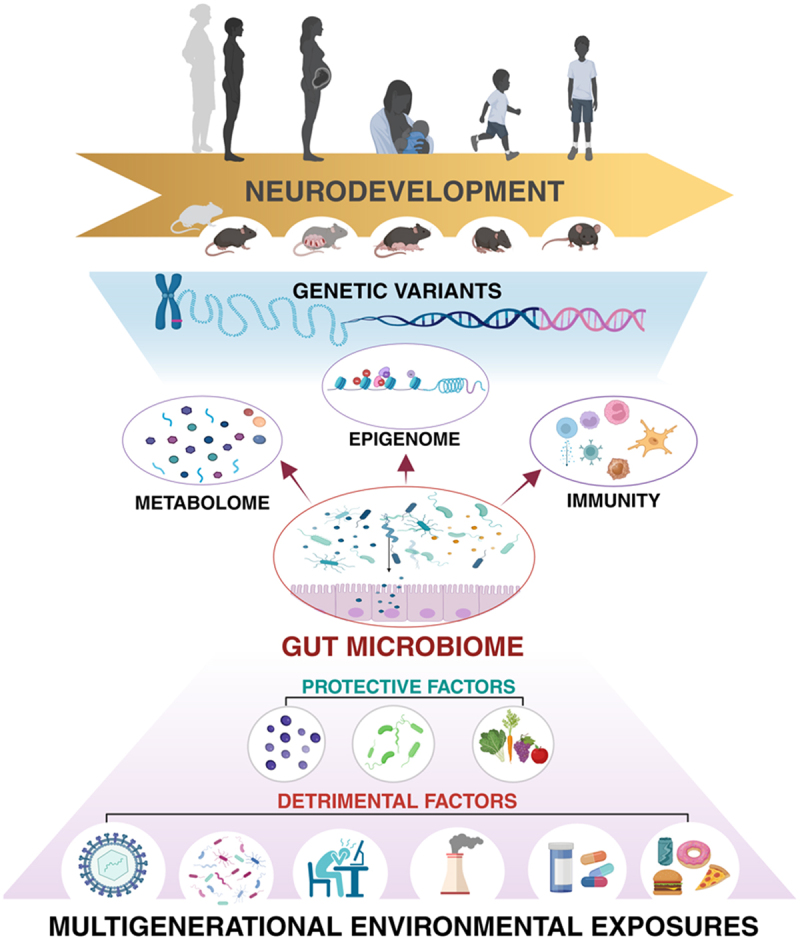Figure 1.

As a key intermediary between the exposome and genetic susceptibility, the gut microbiome is poised to influence risk for neurodevelopmental disorders.
Classically, mutations in one or more genes involved in regulating brain development and function were thought to be the exclusive drivers of neurodevelopmental disorders; however, a growing body of preclinical and clinical research is revealing a critical role for gene X environment interactions in determining predisposition to and the severity of neurodevelopmental disorders. Environmental exposures – from infection to diet to air quality – that influence the functional composition of the maternal and early life infant gut microbiome can alter the diverse pool of microbially associated metabolites available to the host, which can then affect maturation and function of the immune system and drive cell type-specific epigenetic reprogramming that influences neurobehavioral outcomes. Notably, environmental exposures incurred across multiple generations can affect early life neurodevelopment and disease risk through inherited patterns of microbiome alterations and epigenetic modifications. Given its strategic position between the host and its environment, the gut microbiome presents an intriguing duality as both a potential contributor to and a therapeutic target for reducing risk for neurodevelopmental disorders in children.
